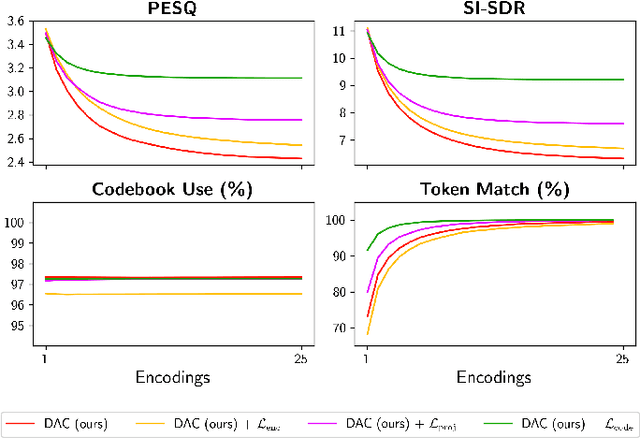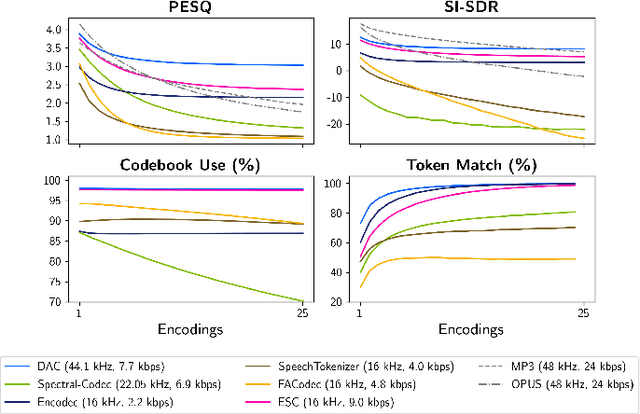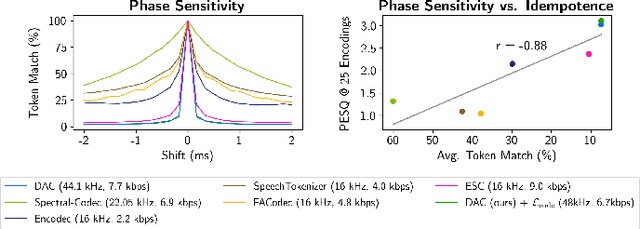Code Drift: Towards Idempotent Neural Audio Codecs
Paper and Code
Oct 14, 2024



Neural codecs have demonstrated strong performance in high-fidelity compression of audio signals at low bitrates. The token-based representations produced by these codecs have proven particularly useful for generative modeling. While much research has focused on improvements in compression ratio and perceptual transparency, recent works have largely overlooked another desirable codec property -- idempotence, the stability of compressed outputs under multiple rounds of encoding. We find that state-of-the-art neural codecs exhibit varied degrees of idempotence, with some degrading audio outputs significantly after as few as three encodings. We investigate possible causes of low idempotence and devise a method for improving idempotence through fine-tuning a codec model. We then examine the effect of idempotence on a simple conditional generative modeling task, and find that increased idempotence can be achieved without negatively impacting downstream modeling performance -- potentially extending the usefulness of neural codecs for practical file compression and iterative generative modeling workflows.
 Add to Chrome
Add to Chrome Add to Firefox
Add to Firefox Add to Edge
Add to Edge